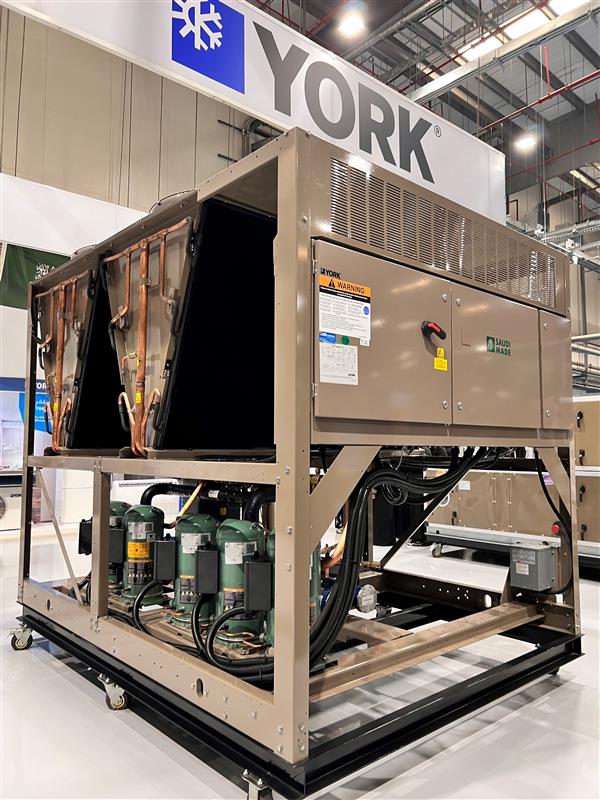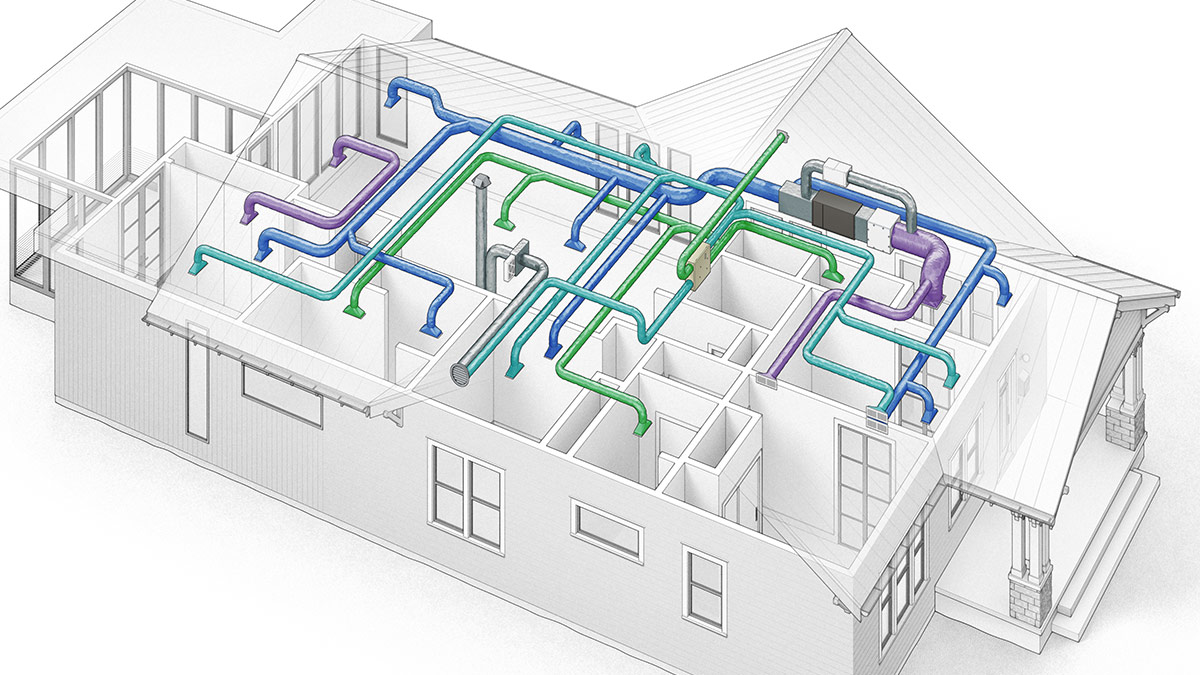Explore how HVAC experts deliver unique HVAC system services
Exploring the Crucial Elements of a Reliable HVAC System
An effective heating and cooling system is constructed on numerous critical parts that operate in consistency. Each component, from the thermostat to the ductwork, plays a crucial role in keeping convenience and power effectiveness. Understanding these components is critical for enhancing performance and boosting interior air top quality. As one checks out these parts, the complex connections between them reveal insights into improving overall system efficiency. What specific factors add most to this performance?
The Duty of the Thermostat in A/c Effectiveness
Usually forgotten, the thermostat plays a critical role in the effectiveness of HVAC systems. This tiny gadget serves as the primary control center, regulating temperature level settings and making sure suitable comfort within an area. By accurately noticing the ambient temperature, the thermostat communicates with the air flow, heating, and air conditioning devices to maintain the preferred environment
An efficient thermostat lessens power consumption by triggering the cooling and heating system only when required, consequently protecting against excessive heating or air conditioning. Modern programmable and smart thermostats boost this performance even more by enabling individuals to set schedules and remotely adjust settings, adapting to daily routines.
In addition, the positioning of the thermostat is necessary; inappropriate place can cause unreliable temperature analyses, leading to ineffective procedure. Generally, a well-functioning thermostat not only boosts convenience but additionally adds considerably to energy savings and the longevity of the HVAC system.
Understanding the Relevance of Air Filters
Air filters offer a crucial feature in a/c systems by guaranteeing that the air circulating within a room stays healthy and balanced and tidy. These filters trap dirt, irritants, and other pollutants, stopping them from being recirculated throughout the setting. By recording these fragments, air filters contribute to improved interior air high quality, which can significantly benefit occupants' wellness, especially those with allergies or respiratory system conditions.
Additionally, preserving clean air filters boosts the performance of a/c systems. Stopped up filters can limit air flow, triggering the system to work tougher to preserve wanted temperatures, leading to boosted energy usage and higher utility costs. Consistently replacing or cleansing filters is a vital upkeep step that can extend the lifespan of cooling and heating equipment. Inevitably, understanding the relevance of air filters enables home owners and building managers to take aggressive measures to ensure a well-functioning, reliable HVAC system that promotes a risk-free and comfy interior environment.

The Functionality of the Furnace and Heatpump
Furnaces and warmth pumps are important components of cooling and heating systems, responsible for providing heat throughout chillier months. Furnaces run by heating air with combustion or electrical resistance, after that dispersing it throughout the home via air ducts. They usually offer fast heating and can be sustained by gas, power, or oil, depending upon the system kind.
On the other hand, heatpump move warm instead than produce it. They remove heat from the outside air or ground, even in low temperature levels, and move it indoors. HVAC experts. This dual performance enables warm pumps to additionally offer air conditioning in warmer months, making them versatile options for year-round climate control
Both systems require appropriate maintenance to ensure effectiveness and long life. While heaters succeed in severe cool, warmth pumps can be beneficial in moderate climates. Understanding their distinct functionalities aids house owners in picking the most suitable option for their home heating requires.
Discovering the Cooling Device
The cooling device is an important element of cooling and heating systems, available in various types to suit different needs. Understanding the efficiency ratings of these units is essential for making informed selections concerning power intake and price. This section will certainly discover the varied kinds of a/c and make clear exactly how effectiveness scores impact efficiency.
Sorts Of Air Conditioners
While various factors affect the option of air conditioning systems, understanding the various kinds offered is crucial for homeowners and structure managers alike. Central air conditioning conditioners are developed to cool down entire homes or structures, using a network of air ducts for air flow. Home window systems offer an even more localized option, ideal for tiny spaces or solitary rooms. Mobile air conditioning system supply flexibility, enabling users to move the device as needed. Ductless mini-split systems are another alternative, integrating the efficiency of main systems with the comfort of zoning, as they need no ductwork. Lastly, geothermal systems harness the earth's temperature level for energy-efficient air conditioning. Each type features distinct benefits, making informed options important for efficient environment control.

Performance Rankings Clarified
Recognizing efficiency rankings is vital for choosing the appropriate a/c device, as these metrics give insight right into the system's performance and power intake. The most typical ranking for air conditioning unit is the Seasonal Power Efficiency Ratio (SEER), which determines the cooling result during a common air conditioning period divided by the complete electrical energy input. A greater SEER shows better effectiveness. In addition, the Energy Effectiveness Proportion (EER) is used for determining performance under particular problems. Another crucial metric is the Power Star qualification, which represents that a device satisfies rigorous see energy performance guidelines. By reviewing these scores, customers can make educated selections that not just maximize convenience however also lower energy costs and ecological impact.
The Importance of Ductwork and Air movement
Effective ductwork style and air flow monitoring play important duties in the overall effectiveness and performance of a/c systems. Correct ductwork warranties that conditioned air is dispersed evenly throughout a room, decreasing temperature level variations and boosting convenience. Properly designed ducts minimize resistance to air movement, decreasing the work on HVAC devices and inevitably lowering power intake.
Airflow administration includes strategically putting vents and signs up to improve the flow of air. This avoids typical problems such as cold or warm places, which can take place when air flow is obstructed or improperly balanced. Additionally, the appropriate air duct materials and insulation can additionally enhance effectiveness by decreasing warmth loss or gain throughout air transit.
A reliable ductwork system not only adds to energy financial savings however can also lengthen the life expectancy of HVAC tools by decreasing unnecessary stress (HVAC experts). Subsequently, comprehending the significance of ductwork and air flow is crucial for attaining peak heating and cooling system efficiency
Normal Upkeep Practices to Boost Performance
Regular upkeep methods are crucial for making certain peak efficiency of HVAC systems. These techniques include regular inspections, cleaning, and needed repairs to keep the system running effectively. Frequently transforming air filters is vital, as blocked filters can obstruct air flow and lower performance. Additionally, service technicians need to check and clean evaporator and condenser coils to avoid overheating and power wastefulness.
Yearly specialist inspections are also recommended, as qualified service technicians can recognize possible concerns prior to they rise. Oiling moving parts minimizes wear and tear, contributing to a longer lifespan for the system. Furthermore, making sure that the thermostat works properly help in maintaining optimal temperature level control.

Frequently Asked Concerns
Exactly how Commonly Should I Change My Thermostat?
Thermostats should usually be changed every 5 to ten years, depending upon use and innovation innovations. Normal checks are suggested to ensure peak efficiency, especially if experiencing inconsistent temperature level control or increased power prices.
What Dimension Air Filter Is Finest for My A/c System?
The very best size air filter for an a/c system varies by unit design. Typically, it's vital to consult the proprietor's guidebook or inspect the existing filter dimensions to guarantee peak efficiency and air high quality.
Can I Set Up a Warm Pump Myself?
Installing a heat pump individually is feasible for proficient individuals, yet it requires understanding of electrical systems and neighborhood codes. Employing a professional is advised to click here to find out more assure proper installment and perfect system efficiency.
Just how Do I Know if My Ductwork Is Reliable?
To establish ductwork performance, one need to look for leakages, step air flow at vents, inspect insulation top quality, and review temperature differences in between supply and return ducts. Specialist evaluations can supply thorough insights right into general efficiency.
What Are Indications My HVAC Demands Immediate Upkeep?
Indicators that a cooling and heating system needs immediate upkeep include uncommon noises, irregular temperature levels, boosted power bills, undesirable odors, and regular biking. Attending to these issues immediately can avoid more damage and assurance optimal system performance.
Air filters serve an essential function in Cooling and heating systems by guaranteeing that the air distributing within a room remains healthy and balanced and clean. In addition, maintaining tidy air filters boosts the efficiency of Cooling and heating systems. see this page Ductless mini-split systems are one more option, incorporating the performance of main systems with the benefit of zoning, as they require no ductwork. Understanding performance scores is vital for picking the ideal air conditioning system, as these metrics offer insight into the system's efficiency and power consumption. The best dimension air filter for a Cooling and heating system differs by system design.